
Charles John Huffam Dickens was an English novelist, journalist, short story writer and social critic. He created some of literature's best-known fictional characters, and is regarded by many as the greatest novelist of the Victorian era. His works enjoyed unprecedented popularity during his lifetime and, by the 20th century, critics and scholars had recognised him as a literary genius. His novels and short stories are widely read today.

Sir Walter Scott, 1st Baronet, was a British novelist, poet and historian. Many of his works remain classics of European and Scottish literature, notably the novels Ivanhoe (1819), Rob Roy (1817), Waverley (1814), Old Mortality (1816), The Heart of Mid-Lothian (1818), and The Bride of Lammermoor (1819), along with the narrative poems Marmion (1808) and The Lady of the Lake (1810). He had a major impact on European and American literature.
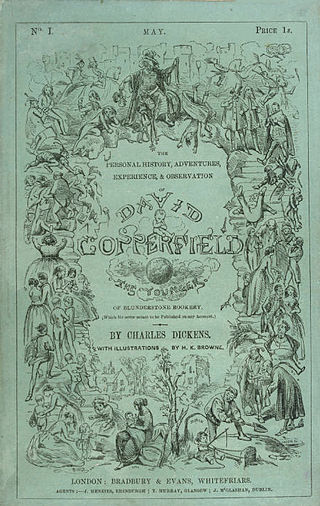
David Copperfield is a novel by English author Charles Dickens, narrated by the eponymous David Copperfield, detailing his adventures in his journey from infancy to maturity. As such, it is typically categorized in the bildungsroman genre. It was published as a serial in 1849 and 1850 and then as a book in 1850.

Thinks ... is a 2001 novel by British author David Lodge. The novel concerns the extramarital affairs between faculty members at a fictional British university.
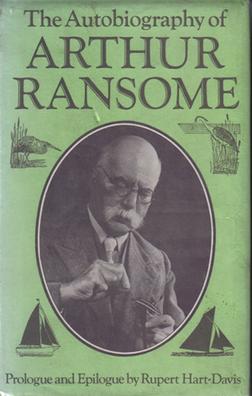
Arthur Michell Ransome was an English author and journalist. He is best known for writing and illustrating the Swallows and Amazons series of children's books about the school-holiday adventures of children, mostly in the Lake District and the Norfolk Broads. The entire series remains in print, and Swallows and Amazons is the basis for a tourist industry around Windermere and Coniston Water, the two lakes Ransome adapted as his fictional North Country lake.
David John Lodge CBE FRSL is an English author and critic. A literature professor at the University of Birmingham until 1987, some of his novels satirise academic life, notably the "Campus Trilogy" – Changing Places: A Tale of Two Campuses (1975), Small World: An Academic Romance (1984) and Nice Work (1988). The second two were shortlisted for the Booker Prize. Another theme is Roman Catholicism, beginning from his first published novel The Picturegoers (1960). Lodge has also written television screenplays and three stage plays. After retiring, he continued to publish literary criticism. His edition of Twentieth Century Literary Criticism (1972) includes essays on 20th-century writers such as T. S. Eliot. In 1992, he published The Art of Fiction, a collection of essays on literary techniques with illustrative examples from great authors, such as Point of View, The Stream of Consciousness and Interior Monologue, beginning with Beginning and ending with Ending.
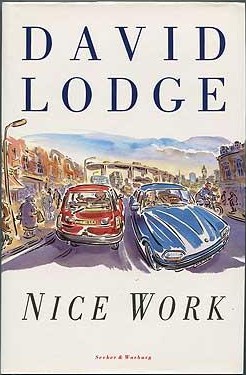
Nice Work is a 1988 novel by British author David Lodge. It is the final volume of Lodge's "Campus Trilogy", after Changing Places (1975) and Small World: An Academic Romance (1984). Nice Work won the Sunday Express Book of the Year award in 1988 and was also shortlisted for the Booker Prize.

The Swallows and Amazons series is a series of twelve children's adventure novels by English author Arthur Ransome. Set in the interwar period, the novels involve group adventures by children, mainly in the school holidays and mainly in England. They revolve around outdoor activities, especially sailing. Literary critic Peter Hunt believes it "changed British literature, affected a whole generation's view of holidays, helped to create the national image of the English Lake District and added Arthur Ransome's name to the select list of classic British children's authors." The series remains popular and inspires visits to the Lake District and Norfolk Broads, where many of the books are set.
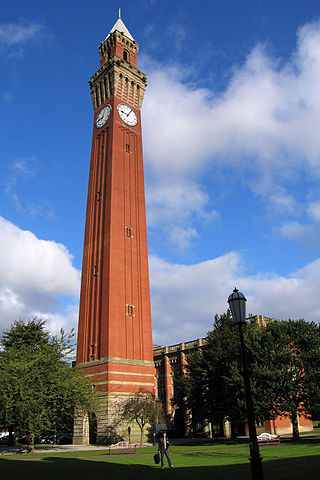
The Joseph Chamberlain Memorial Clock Tower, or colloquially Old Joe, is a clock tower and campanile located in Chancellor's court at the University of Birmingham, in the suburb of Edgbaston. It is the tallest free-standing clock tower in the world, although its actual height is the subject of some confusion. The university lists it variously as 110 metres (361 ft), 99 metres (325 ft), and 100 metres tall, the last of which is supported by other sources. In a lecture in 1945, Mr C. G. Burton, secretary of the University, stated that "the tower stands 329 ft [100 m] high, the clock dials measure 17 ft [5.2 m] in diameter, the length of the clock hands are 10 and 6 ft [3.0 and 1.8 m], and the bell weighs 5 long tons [5.1 tonnes]".

Sir Malcolm Stanley Bradbury, was an English author and academic.

Rob Roy (1817) is a historical novel by Walter Scott and is one of the Waverley novels. It is probably set in 1715, the year of the second Jacobite rising, and the social and economic background to that event are an important element in the novel, though it is not treated directly. The depiction of Rob Roy bears little relation to the historical figure: "there are two Rob Roys. One lived and breathed. The other is a good story, a lively tale set in the past. Both may be accepted as ‘valid', but they serve different needs and interests."

Small World: An Academic Romance (1984) is a campus novel by the British writer David Lodge. It is the second book of Lodge's "Campus Trilogy", after Changing Places (1975) and before Nice Work (1988).

Fantasy literature is literature set in an imaginary universe, often but not always without any locations, events, or people from the real world. Magic, the supernatural and magical creatures are common in many of these imaginary worlds. Fantasy literature may be directed at both children and adults.
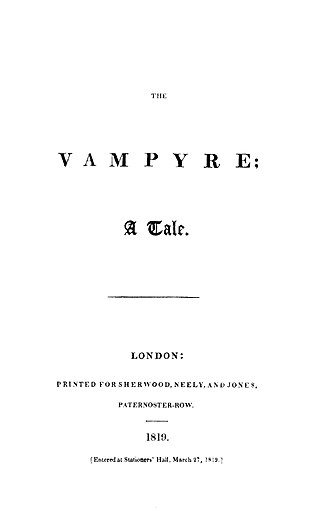
"The Vampyre" is a short work of prose fiction written in 1819 by John William Polidori, taken from the story told by Lord Byron as part of a contest among Polidori, Mary Shelley, Lord Byron, and Percy Shelley. The same contest produced the novel Frankenstein; or, The Modern Prometheus. "The Vampyre" is often viewed as the progenitor of the romantic vampire genre of fantasy fiction. The work is described by Christopher Frayling as "the first story successfully to fuse the disparate elements of vampirism into a coherent literary genre."

Isobel Violet Hunt was a British author and literary hostess. She wrote feminist novels. She founded the Women Writers' Suffrage League in 1908 and participated in the founding of International PEN.

Elements of the supernatural and the fantastic were an element of literature from its beginning. The modern fantasy genre is distinguished from tales and folklore which contain fantastic elements, first by the acknowledged fictitious nature of the work, and second by the naming of an author. Authors like George MacDonald (1824–1905) created the first explicitly fantastic works.
A campus novel, also known as an academic novel, is a novel whose main action is set in and around the campus of a university. The genre in its current form dates back to the early 1950s. The Groves of Academe by Mary McCarthy, published in 1952, is often quoted as the earliest example, although in Faculty Towers: The Academic Novel and Its Discontents, Elaine Showalter discusses C. P. Snow's The Masters, of the previous year, and several earlier novels have an academic setting and the same characteristics, such as Thomas Hardy's Jude the Obscure of 1894 to 1896; Willa Cather's The Professor's House of 1925; Régis Messac's Smith Conundrum, first published between 1928 and 1931; and Dorothy L. Sayers' Gaudy Night of 1935.
Small World is a 1988 British television miniseries based on David Lodge's 1984 novel Small World: An Academic Romance. Structured as six one-hour episodes, its producer was Steve Hawes, and its director was Robert Chetwyn. Howard Schuman wrote the screenplay, in consultation with Lodge. The titles of the six episodes are:

The Man Who Wouldn't Get Up: And Other Stories is the first collection of short stories by David Lodge.
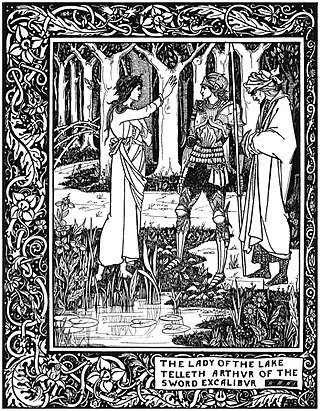
Romance, is a "a fictitious narrative in prose or verse; the interest of which turns upon marvellous and uncommon incidents". This genre contrasted with the main tradition of the novel, which realistically depict life. These works frequently, but not exclusively, take the form of the historical novel. Walter Scott describes romance as a "kindred term", and many European languages do not distinguish between romance and novel: "a novel is le roman, der Roman, il romanzo".

















